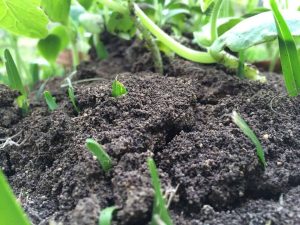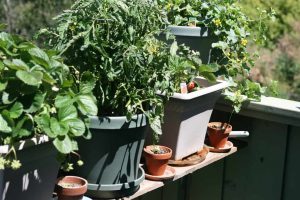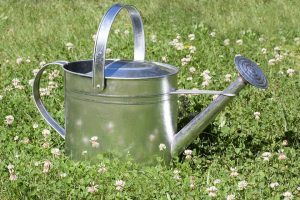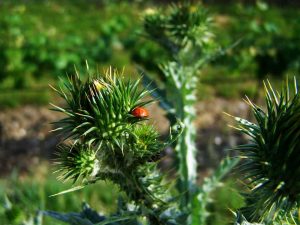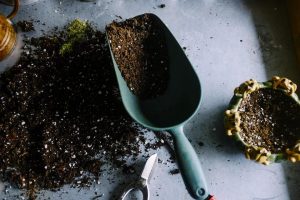Winter might seem like the worst time to get into the garden but January is a crucial period for any gardener. With blue Monday gone, now is the time to start planning your gardening strategy for the year. With these no-nonsense resolutions, you can get stuck in and make sure that everything runs smoothly throughout the course of the year.
- Get brutal with your pests
The simplest and cheapest way to stopping pests is having a healthy garden. This naturally discourages any creepy crawlies. Clearing away debris and disposing of infected or damaged plants is the best place to start. Use fresh healthy soil to fill in any gaps, using natural composting methods, then lay down a layer of mulch. This encourages plant growth and will prevent creatures from using your garden as a habitat. To stop more insects coming, apply fresh layers of mulch to your soil and water early in the mornings. Applying chemicals across your garden is not the way to go, it can kill off the good bugs. Lady bugs, lacewings and ground beetles will eat the pests which cause you problems.
- Plan your growth for the year
Make a decision early about what you want to grow throughout the seasons. This will then allow you to order the necessary seeds and get ahead of the game. Resist buying too many, as it will lead to waste or using up too much room. Deciding early also allows you to rotate any plants or make any necessary changes to your garden layout. Rotating plants or crops keeps your garden fresh and will further eliminate the risk of disease and pests.
- Prepare all your soil
Get things off to a good start and test your soil. Mixing soil with compost and clippings will only enrich it with natural nutrients. To stay prepared for the year, stockpile anything which might come in handy and put them into soil bags. This will stop you re-using any infested or dry soil, which prevents plants from absorbing what they need.
- Use Raised beds and containers
Separate your plants into raised beds or containers to prevent overusing garden space and overcrowding. This will also reduce water wastage, whilst minimising the risk of any vegetation getting trampled or damaged. Having already planned out your growth for the year, you can create different beds for crops. Keeping all your seeds a good distance apart will stop plants from overshadowing others, enabling a similar rate of cultivation.
- Stay on top of your watering
Water your plants at least once or twice a week. The best time to water your plants is the mornings, cool air helps the soil maintain moisture, which means the roots absorb more goodness. Rain is the best source of water for plants, so do not overwater if it’s not necessary. Make sure you get to the base of the plant, when the roots are sorted the rest will blossom.
- Don’t resent your weeding
Weeds are a natural part of any garden. Getting rid of them without using chemicals is hugely important to maintaining a natural organic garden. Give yourself the task of weeding once a week, this will keep you on top and stop you from time wasting. Spreading mulch across your plant base is a great technique for combatting weeds early and it will further fertilise your soil. You can buy mulch, but the best you can make with wood chippings, straw and garden clippings.
- Get the right fertiliser
Keeping your soil fertilised is the most efficient way of boosting plant and vegetable growth. This is especially important when using beds or containers as they have a limited amount of soil. Using the right soil is a great way to start and means later down the line, you don’t have to use as much fertiliser. Planning your growth for the year, also means that you can get the right stuff in early. Giving certain plants the wrong fertiliser or crossing them over will have a negative effect on growth.
Gardening should be fun and enjoyable, but if you don’t stay on top of it then it becomes a chore. Using these seven steps to stay ahead will allow your garden to grow and prosper throughout the course of the year.



